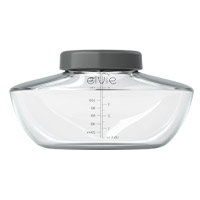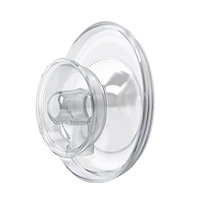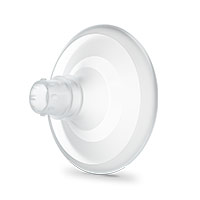Menopause - the ceasing of a woman's menstrual cycle - is a process rather than a single event. Menopause can last up to ten years, and the process includes perimenopause - the transition from a woman's regular cycles into more erratic and less frequent cycles as she moves into menopause.
Although thankfully the conversation around menopause is starting to open up and many women are now confidently sharing their experiences with friends and family - there is still a lot of information women just aren’t told or are too embarrassed to ask for.
Nutritionist Jodie Abrahams shares her expert advice on how what you eat can have a positive effect on your experience of the menopause and how food can even help to alleviate your symptoms. Here she covers some guiding nutritional principles.
The role of stress in menopause
Although the ovaries no longer produce oestrogen after the menopause, it is produced in lower amounts by the adrenal glands. The adrenals also produce our stress hormone cortisol. In times of stress when in survival mode, our bodies prioritise the production of cortisol over oestrogen. So it makes sense that high stress levels along with our nutritional status can result in a more symptomatic menopause. Hot flushes, low mood and weight gain are all menopausal symptoms associated with the body being exposed to higher levels of stress.
Oestrogen has a number of functions in the body, and deficiency can result in poor memory, mood swings, brain fog, urinary problems and lack of motivation.
If you're a tea or coffee drinker, bear in mind that caffeine can increase anxiety by causing cortisol to spike.
Blood sugar and menopause symptoms
Because our blood sugar balance plays a key role in mood and memory, making sure that it's stable can help to reduce the effects of decreasing hormone levels. It's worth noting that hot flashes are also linked with poor blood sugar control, and can be triggered by a high sugar diet (along with caffeine, alcohol and spicy foods).
So avoid the chocolate, biscuits and refined carbohydrates, alcohol and fizzy drinks.
So what should you be eating?
Healthy fats and good quality protein
To stabilise our blood sugar and provide the raw materials for making hormones, we need adequate fat and protein at each meal. Olive oil, coconut oil, walnuts, almonds, flaxseeds, pumpkin and sesame seeds, avocados and wild caught oily fish like salmon, mackerel and sardines are excellent choices for fats. Legumes, organic fermented soy like miso and tempeh, plus fish, poultry, meat and eggs provide good quality protein. Eating enough fat and protein will improve energy levels and reduce sugar cravings - this alone can have a huge impact menopausal symptoms.
Vitamin C
We already know that supporting the adrenals is important during menopause. Vitamin C is particularly concentrated in the adrenal glands, and is needed for them to function properly. Berries, green veggies, bell peppers and citrus fruits are all great sources of vitamin C. Easy ways to up these foods in your daily diet are:
adding a handful of blueberries to porridge or smoothies
including a handful of rocket, spinach or watercress with lunch and dinner
snacking on red pepper crudites with hummus.
Phytoestrogens
Phytoestrogenic foods can mildly mimic the effects of oestrogen in the body, which may help to reduce the side effects of menopause. Wild yam, flaxseeds, sesame seeds, walnuts, chickpeas, lentils, wholegrains, edamame beans, miso, tempeh, berries, cauliflower, broccoli, brussels sprouts, cabbage and alfalfa sprouts all contain phytoestrogens.
If you are using HRT, consult with your doctor before using phytoestrogenic foods heavily in your diet.
Magnesium
Magnesium rich foods can help to calm the nervous system and reduce the impact of stress on the body. We use up more magnesium during stressful periods, so it's particularly important to replenish it when life is demanding. Pumpkin seeds, sesame and sunflower seeds, spinach, chard, black beans, cashews and quinoa are all rich in magnesium so include them in your diet regularly. As an added bonus, these foods are also high in fibre, which supports good digestion.
Green tea
Green tea is a great alternative to coffee. While it does contain some caffeine, it is also rich in L-theanine, an amino acid which stimulates the calming neurotransmitter GABA - great for counteracting anxiety. Green tea may also help to balance oestrogen levels and have cardiovascular benefits for post-menopausal women.
Menopause and urinary health
One of the effects of lower levels of oestrogen in the body during and post-menopause, is the weakening of the muscles in the urinary tract and vagina. This can result in bladder weakness, reduced pelvic floor function and an increased risk of urinary tract infections.
As well as exercising the pelvic floor and using a Kegel trainer such as Elvie Trainer, reduce diuretics like caffeine, alcohol and fizzy drinks while increasing fibre from plenty of fruit, vegetables, wholegrains, nuts and seeds. Cranberry (or a d-mannose supplement) can help to prevent urinary infections.
For personalised nutrition advice, it's always worth seeking out a nutritional therapist. For more nutrition and lifestyle tips and recipes from Jodie head to her website here.












 5 minute read
5 minute read